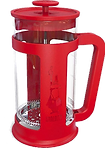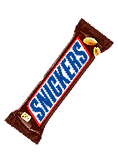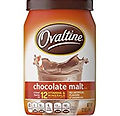
Can I Drink Coffee While Pregnant?
There really is a lot of information on the internet regarding caffeine during pregnancy and it get's pretty confusing as to what's right & what's not right.
Type 'Caffeine & Pregnancy' into Google and you'll get around 30 million results! Sheesh!
"To get the guidance right, we've looked at official and trusted sources from the US, UK, Europe, Canada and Australia and lay it out in a clear and simple manner in this quick and to the point article."
But ... before we continue, let's get straight to the most important piece of medical advice you'll read online. Which is ...
Don't make medical decisions based on what you read online.
Always speak to your doctor for advice.
If you're pregnant and are concerned about consuming caffeine, it's always best to consult your doctor about it.
This article is here just to give you reliable guidance.
So, let's get straight to it
Caffeine & Pregnancy.
5 minute read.
Most doctors and medical professionals generally agree that you should ideally avoid consuming caffeine during your pregnancy.
The reason for this is that caffeine is actually classed as a psychoactive drug which has a stimulating affect on the Central Nervous System of our bodies. If you consume a high dose, it can have a negative affect on your pregnancy.
Is Caffeine Safe When Pregnant?

A small amount of daily caffeine has been proven by scientific studies from around the world to be perfectly safe.
Let's take a look below.
But ...

According to the UK's National Health Service and the European Food Safety Agency, a healthy adult woman who is pregnant can safely consume up to (max) 200mg of caffeine in any given 24 hour period.
Leading online health journal (HealthLine.com) states that pregnant women metabolise caffeine much slower than they would when not pregnant. In fact, it can take 1.5 – 3.5 times longer to eliminate caffeine from your body during your pregnancy than what it would otherwise.
This means that caffeine can stay in your system for around 8 to 21 hours instead of the usual 5 to 6 hours when not pregnant.
Caffeine comes under a drug classification called methylxanthine. This classification of drug is sometimes used to treat (among other things) respiratory conditions in premature born babies. It's powerful stuff, which is why we need to control our intake of it.
Quick Summary.
-
Too much caffeine isn’t good for you or your baby.
-
Caffeine takes longer to leave your body when pregnant.
-
You can safely consume up to 200mg of caffeine per day when pregnant.
This has been verified by:
UK - The National Health Service (NHS).
US - The American College of Obstetricians and Gynecologists (ACOG).
EU - The European Food Safety Agency (EFSA).
CA - HealthyCanadians.gc.ca.
According to the American CDC, Caffeine passes from the mother to infant in small amounts through breast milk, but usually does not adversely affect the infant when the mother consumes low to moderate amounts (Max 200 mg per day - but 0mg per day is much better ).
Caffeine - Breast Feeding.
Caffeine levels peak in your breast milk one to two hours after you've ingested it. Babies who are premature, under six months or have other health issues may be more likely to show symptoms of "caffeine irritation".
According to the Australian Breast Feeding Association, the only way to know if your caffeine intake is affecting your baby is to monitor them closely and observe for the symptoms of too much caffeine.
Babies who are reacting to your caffeine intake may be
-
Unusually irritable or fussy.
-
Spend longer periods awake and/or more alert than usual.
-
Colic can sometimes also be a symptom.
These symptoms shouldn't normally occur if you're staying within the recommended limit and that your baby is not "sensitive" to caffeine.

... Can occur in anybody. Whether you be 90 years old or 9 weeks old, the psychoactive effect of caffeine will affect our bodies regardless of age.
According to the Australian Government's Department of Health, sensitivity to caffeine can vary from person to person.
The symptoms are pretty easy to notice when you know what to look for.
Caffeine Sensitivity.
Caffeine Sensitivity - Common Symptoms.
Baby.
-
Sleep less / Awake for longer.
-
Irritable more frequently.
-
Colic can be triggered by caffeine in your baby's body.
You.
-
Frequently anxious / Anxiety.
-
Can't sleep / Insomnia.
-
Headaches.
-
Muscular twitches.
-
Dehydration (symptoms of).
-
Urinating more than normal.
_edited_edited.png)
-
Also, If a breastfeeding mother has nipple vasospasm she may find that caffeine consumption will actually aggravate it.
If you or your baby are experiencing any of the above symptoms, you should consult with your doctor or health professional.
Quick Summary.
-
A small amount of caffeine will pass to your baby through your breast milk..
-
Caffeine levels peak in your breast milk one to two hours after you've ingested it.
-
You can safely consume up to 200mg of caffeine per day while breast feeding.
-
Know the symptoms of caffeine sensitivity and monitor for them (for you and baby).
Verified by:
AUS - Australian Breast Feeding Association (ABFA).
UK - The National Health Service (NHS).
AUS - Australian Department for Health (ADH).
US - The American Center for Disease Control (CDC).

The London Collection
So, How Much Caffeine is actually in my Cup of Coffee?
How do you accurately measure 200mg of caffeine anyway?
Anyone?
It's easier said than done. So ...
We've done just that & simplified it all into plain English.
What we Can Have.
Pregnancy can seem like a long list of "no's" and "can't have's" and "must do's". So let's take a look into what we can enjoy.
(From a caffeine perspective).
Instant Coffee.

There are 3 kinds of coffee bean.
-
Liberica - Low caffeine.
-
Arabica - Medium.
-
Robusta - High.
Instant coffee in a jar is almost certainly Arabica. If it was either of the other 2 kinds of bean, it would say so on the label or packaging.
You'll get 5 grams of coffee on 1 full teaspoon. So, for caffeine per teaspoon you'll get:
-
Liberica = Around 50mg.
-
Arabica = Around 85mg.
-
Robusta = Around 130mg.
Which means we can have;
-
Liberica = 4 cups a day.
-
Arabica = 2 cups a day.
-
Robusta = 1.5 cups a day.
Based on a "Medium roast" coffee. Light roast will have a little more caffeine, dark roast will have a little less.
Filter / Machine Coffee.


Filter and machine coffee is usually of a higher grade and therefor will have more caffeine than what you'd get from a serving of instant coffee.
We can have: (cups per day).
Imperial
8fl oz
11 fl oz
15 fl oz
Liberica.
2
1.5
1
Arabica.
1.5
1
0.75
Robusta.
1
0.5
0
235 ml
325 ml
440 ml
Metric
The above is a guide based on the caffeine content from each type of coffee bean. Your cup size may be smaller or larger & your brand of coffee may be a little higher or a little lower in caffeine.

De-caff.
There are a couple of things you need to know about de-caffeinated coffee.
-
"De-caff" actually means - A little bit of caffeine is in the coffee.
The coffee industry processes the bean in a way that almost removes all of the caffeine. So for a teaspoon of Arabica, you'll get somewhere between 1 to 10mg of caffeine, and slightly more for filter/machine coffee.
And ...
-
Non-organic de-caff is .. umm .. how shall we put this? It's .
You might want to think twice about drinking non-organic de-caff.
The coffee industry has come a long way over the decades with regards to improving the process of de-caffing the coffee bean, but some coffee processors still use the "Ethyl Acetate" method which is a chemical more suited to making glues, solvents and various other industrial chemicals.
-
Organic decaff is much better.
If you don't already, try an organic de-caff.
C02 is used to remove the caffeine instead of a
cocktail of toxic chemicals. (Yup, C02, the stuff
we breathe out of our lungs). Just look for the
"Swiss Water Process" logo on your coffee label.
The logo may vary slightly between different
brands. We've included 2 of them here so you'll
know what to look out for.



Caffeine in Sodas/Pops and Fizzy Drinks.
Many (not all) soda drinks contain a small to medium amount of caffeine. A few contain a high amount.
While most nutritionists and doctors would recommend avoiding drinks like this, from a caffeine perspective, they usually contain less than coffee.

There literally are hundreds of different drink varieties available across the world. We can't cover all of them in this article but we can cover some popular drinks based on caffeine content.






Mountain Dew.
Diet
Coke.
Pepsi
Cola.
Dr
Pepper.
Pepsi Zero
Pepsi Max.
Coca
Cola.
12fl oz.
350 ml
69 mg
Caffeine.
12fl oz.
350 ml
12fl oz.
350 ml
12fl oz.
350 ml
12fl oz.
350 ml
12fl oz.
350 ml
54 mg.
46 mg.
42 mg.
38 mg.
34 mg.
Here are a just few that contain no caffeine:
Fanta, Fanta Zero Orange, Sprite and Sprite Zero, some ginger ales and caffeine free cola drinks.
There really are many, many more beverages both with and without caffeine available throughout the world. If you want to drink caffeine free soda's etc, just look for the "Caffeine Free" label on the bottle or can.
Caffeine in Energy Drinks.
Should you drink these? Nope.
According to The Royal Women's Hospital in Australia:
"These drinks are not recommended in pregnancy."
Energy drinks usually contain a plethora of ingredients that may not be good for the health of your baby.

We came across this article from the National Library of Medicine covering some of the concerns around energy drinks and pregnancy/breast feeding.
We'll just bullet point some of the key points from that article:
-
"Caffeine and vitamin rich energy drinks contain a variety of herbal ingredients and vitamins; however, ingredient amounts may not be clearly disclosed on product labels".
- You may be ingesting a higher dose of caffeine, a particular vitamin or herb than what you think.
-
Some infants can be sensitive to caffeine and display increased irritability and sleep disturbances when exposed to caffeine from breast milk.
- (We've already covered this).
-
" Interactions between herbal ingredients and caffeine are understudied and not well defined"
- What the above statement is saying is that there have been no real studies on the effects of combining caffeine with with herbs (like guarana - in many energy drinks), or caffeine combined with other ingredients commonly found in energy drinks.
The effects of combining caffeine with the other ingredients could have a positive affect on our bodies, or a negative affect. At this time, nobody is 100% sure because the relevant studies have not yet been conducted. Therefor, it's not worth taking the risk by drinking them during your pregnancy or while breast feeding.
How much caffeine in my chocolate?
Bar Size.
1.75 oz.
50 Grams.
3.5.
100.
5.25.
150.
7
200.
Milk
10 mg.
20 mg.
30 mg.
40 mg.
Dark.
21 mg.
43 mg.
64 mg.
86 mg.
There's "trace" amounts of caffeine in white chocolate.
"trace" = it's so microscopically small, it's not worth measuring.
Caffeine in Chocolate.
Yes, those chunky chunks of brown bliss contain caffeine.
The good news is that it's usually less than what's in coffee.
Like the coffee plant, the cocoa tree naturally contains caffeine so it's pretty much unavoidable in brown chocolate.


There are 3 main kinds of chocolate,
(as you probably already know).
-
Milk chocolate.
-
White chocolate.
-
Dark chocolate.
-
Milk chocolate contains some caffeine.
-
Dark chocolate contains around double that of milk chocolate.
-
White chocolate contains almost no caffeine.
Let's take a look and see what's what.
Popular chocolates.





Snickers.
Dairy
Milk.
Hershey's Milk.
BournevilleDark.
Mars
Bar.
1.7 oz.
50g
1.7 oz.
50g
3.5 oz.
100g
3.5 oz.
100g
3.5 oz.
100g
5 mg.
2 mg
Caffeine.
20 mg.
43 mg.
20 mg.
Caffeine in Drinking Chocolate?
There's also some caffeine in drinking chocolate or hot chocolate, but it's usually a lot less than coffee. Let's take a look at a few of them.





Nestle
Milo.
Cadbury.
White
Hot Choc'.
Hershey's
Cocoa.
Ovaltine Choc' Malt.
1 Table
Spoon.
1 Table
Spoon.
1 Table
Spoon.
1 Table
Spoon.
1 Table
Spoon.
3 mg.
5 mg.
8 mg.
Trace.
(None).
4 mg
Caffeine.
And that brings us to the end.
Let's look at what we've learned.
In this article we covered coffee, sodas/pops, chocolate. and drinking chocolate.
There was quite a lot to remember so let's bullet point the key facts.
-
Up to 200mg of caffeine per day is considered safe by leading health authorities from several different countries
(for pregnancy and breast feeding).
Caffeine Sensitivity:
-
Monitor for caffeine sensitivity symptoms in both you and baby.
Coffee:
-
Liberica = low caffeine. Arabica = medium & Robusta = highest.
-
If it doesn't say Liberica or Robusta on the label, it's Arabica.
-
Non-organic de-caff is .
-
Organic decaff is much better. (Swiss Water Process).
Soda/Pop/Fizzy Drinks:
-
Some soda's contain caffeine, some do not. A few are high in caffeine.
-
Check label for caffeine amount.
-
Look for the "Caffeine Free" logo on the bottle or can.
Energy Drinks:
-
Nope.
Chocolate:
-
White chocolate has almost zero caffeine.
-
Milk chocolate has low to medium caffeine.
-
Dark chocolate has the highest.
-
Check label for caffeine amount.
Drinking Chocolate:
-
Is much lower in caffeine than coffee.
-
White chocolate drinks contain almost zero caffeine.
-
Dark chocolate drinks will contain more caffeine. Check label.
And:
-
PregnancyFoodChecker.com has a long list of foods and drinks and what their caffeine content is. It's very helpful.
... and that's all folks!
Thank you very much for reading our article. We hope you found it helpful, straight to the point and easy to understand.
We have more articles below if you'd like to take a look. Helpful stuff.


Decaff' ?
Look for the
"Swiss Water Process" Logo's.
Drinking chocolate follows the same caffeine pattern as choccy chocolate:
White drinking chocolate has no caffeine, milk has some and dark has the most.















